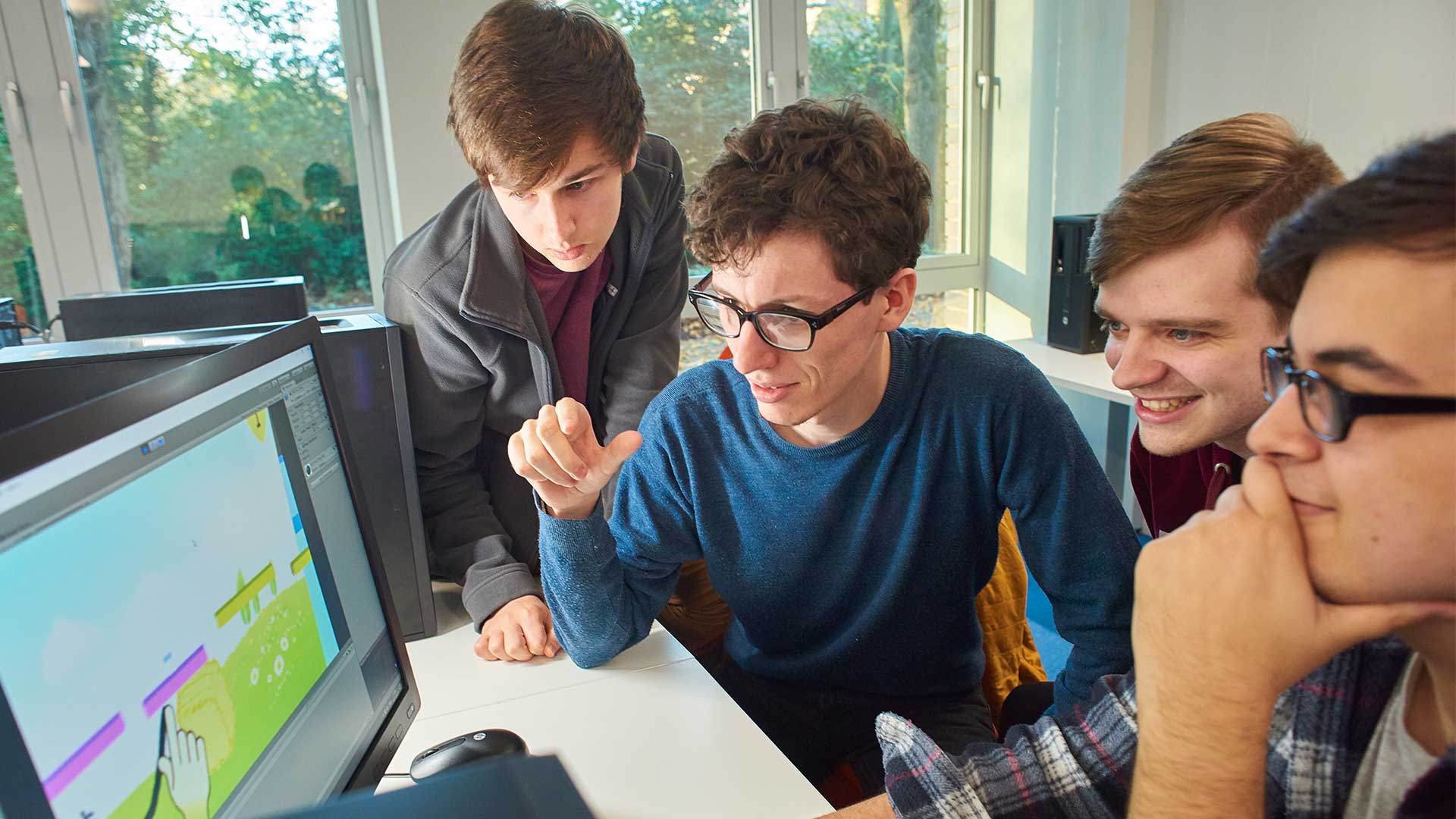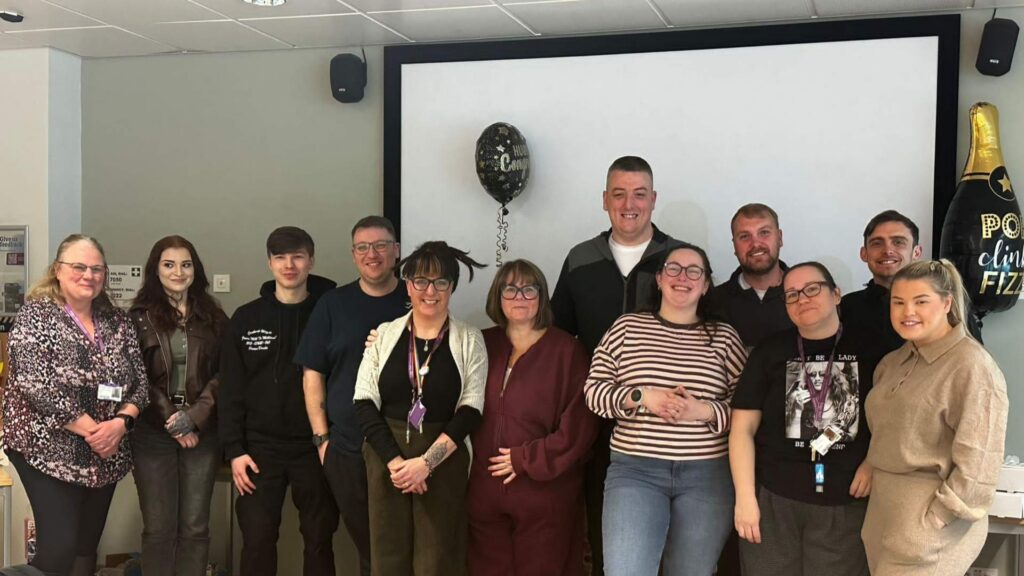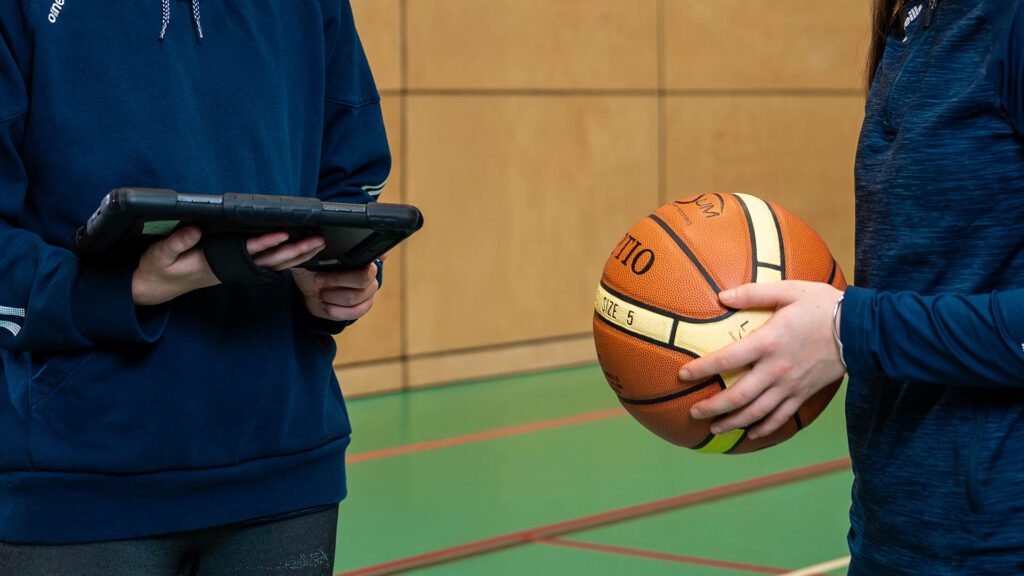
Combining both the programming and core design principles of games development, BSc (Hons) Games Development lets you turn your passion into your work. Games Programmer, AI Engineer or Engine Developer are just some of the potential career routes. Alternatively, you can work for yourself as an indie developer.
We caught up with two of our experienced academics, Saad Saihi and Kyle Worall, about their passion for sharing their knowledge of gaming. With combined specialisms of graphics and audio, their love of the gaming industry, as well as their industry connections, their expertise provides a solid foundation for your career in games development.
What are your gaming interests?

My lifelong passion for gaming has been the driving force behind my career. I’ve been addicted to games since my childhood. With a foundational degree in web development, I began my professional journey as an IT Tutor and later as an IT and Database Manager for the National Democratic Institute. This experience paved the way for my transition into the games industry, where I’ve now dedicated six years. I joined subcontractor studio of Ubisoft, initially as a game developer, then progressed into game design. My career trajectory led me to a leadership role as a Technical Art Director, where I headed a team in developing visual assets for AAA games .
Some of the games I have worked on are:
- Maze of Babylon 1 & 3: Deployed on both the App Store and Play Store. These are puzzle adventure games with unique mechanics that engage players in challenging environments.
- EO4: A strategy game deployed on Steam, featuring tactical gameplay and deep strategic elements.
- BigTime: An online multiplayer RPG where players can explore, collaborate, and engage in real-time combat.
- Relics Hunter: A mobile game with an accompanying Steam desktop version, offering players immersive dungeon-crawling experiences.
- Build Up Project: A collaborative project between Metrocalk and UWE Bristol. This is a research initiative in collaboration with Dr. Marianthi Leon and Dr. Vanda Papafilippou.
I became interested in academia whilst studying for my masters degree. I’ve now worked with several universities and I am in the process of completing my PhD, which is about the analysis of game design. My research focuses on exploring and developing innovative applications of Natural Language Processing (NLP) and Procedural Content Generation (PCG) in games and it’s application to transform educational experiences and architectural design processes, while also advancing game mechanics, narrative generation, and player engagement.
Saad Saihi

I completed a creative music production degree, followed by a masters degree in sound and music interactive games. This was looking at how we put sound and music into a video game. And then I did some freelance composing, before eventually transitioning into computer science. I completed an internship as an Audio Programmer for a startup named Nemisindo. During this I assisted in developing procedural sound effect plugins (software that generates sound effects using synthesis) for Wwise (an audio middleware made by Audiokinetic, who is owned by Sony).
My PhD explores how repetition affects the way people perceive music and then how we can use generative or artificially intelligent solutions to try and fix that. How do you make 8 hours of music last 2000 hours? I am currently the CEO and Founder of a small-scale startup that has spun out from my PhD research at the University of York, namely Cocreative Technology, which focuses on creating tools to enhance non-creative aspects of composer’s workflow. Our technology can emulate the way that musicians play instruments (without generating the notes) and allows composers to make demos and music faster
Kyle Worrall
Kyle discusses his research about AI generative music in further detail.
How will your experience be brought into your teaching?
As part of my PhD I did an internship in industry. I can use my industry connections to help students if there’s a particular area of gaming that they’re interested in, whether it be MedTech or startups. As the Department Employability Lead I try to push students towards internship opportunities and help them to shape their final projects into something that aligns with their career aspirations.
Students can learn about Unreal Engine, which is one of the two main game engines in the world, used not only to make games but also across a variety of other media. An example is Karate Combat (a professional Karate championship), where the backgrounds of the matches are made in Unreal. On the Games Programming module, I take students from no experience in Unreal Engine, all the way to making their first project, including topics such as AI, audio implementation, player controllers, and programming in C++.
Kyle Worrall
As a Game Designer, AI Researcher, and Project Manager who has led AAA game development and innovative tech projects, I provide students with practical, real-world applications of theoretical concepts. For example, my role as an Authorised Unreal Engine Instructor, combined with my C++ programming expertise, enables me to teach industry-standard tools and practices. My ongoing research into AI in Games ensures the curriculum remains current and relevant.
Ultimately, I focus on gamification in pedagogy, creating a dynamic and engaging classroom environment. I also prioritise student employability by incorporating live industry projects and portfolio development opportunities, leveraging my professional network and drawing on my experience in leading student placements and career development initiatives.
Saad Saihi
Why would someone benefit from studying games development at Edge Hill University?
We want to provide you with all the tools you need to succeed in a range of careers. You could graduate ready to explore and specialise in areas like games programming, game AI, animation, sound design and much more. We know that it’s not just about academic work. When you graduate, you’ll be entering a competitive industry, which is why we want to make sure you stand out from the crowd. At Edge Hill you can experience:
- Games-related activities and workshops
- Peer mentoring
- Social events
- Entrepreneurial support
- Industry connections
- Games challenges and showcases
We also have additional extra-curricular activities, such as game jams where you can work with other students over a few days to create a game, which can then be added onto their portfolio.

July 10, 2025


